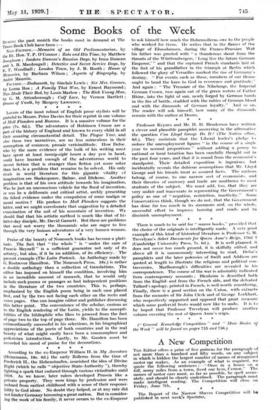According to the ex-Emperor William II. in My Ancestors (Heinemann,
10s. 6d.) the early Zollerns from the time of Frederick H., the Hohenstaufen, nourished the idea of Divine Right (which he calls " objective State-Authority "), thereby lighting a spark that endured through various vicissitudes until 1918. As we know, later rulers developed Prussia like a Private property. They were kings by profession and were imbued from earliest childhood with a sense of their responsi- bility to God alone. No doubt they helped, or at any rate did not hinder Germany becoming a great nation. But in consider- ing the work of his family, it never occurs to the ex-Emperor to ask himself how much the Hohenzollerns owe to the people who worked for them. He writes that in the flames of the village of Elsasshausen, during the Franco-Prussian Wat his father was greeted with " a thunderous shout from the throats of the NVOrttembergers, ' Long live the future German Emperor,' " and that the captured French standards laid at the feet of his grandfather in the triumph at Berlin which followed the glory of Versailles marked the rise of Germany's destiny: " For events such as these, members of our house ought to bend the knee to God in reverence and gratitude." And again : The Treasure of the Nibelungs, the Imperial German Crown, rose again out of the green waters of Father Rhine, into the light of sun, newly forged by German hands in the fire of battle, studded with the rubies of German blood and with the diamonds of German loyalty." And so on. . The reader will ask himself, how many of the diamonds remain with the author at Doom.










































 Previous page
Previous page